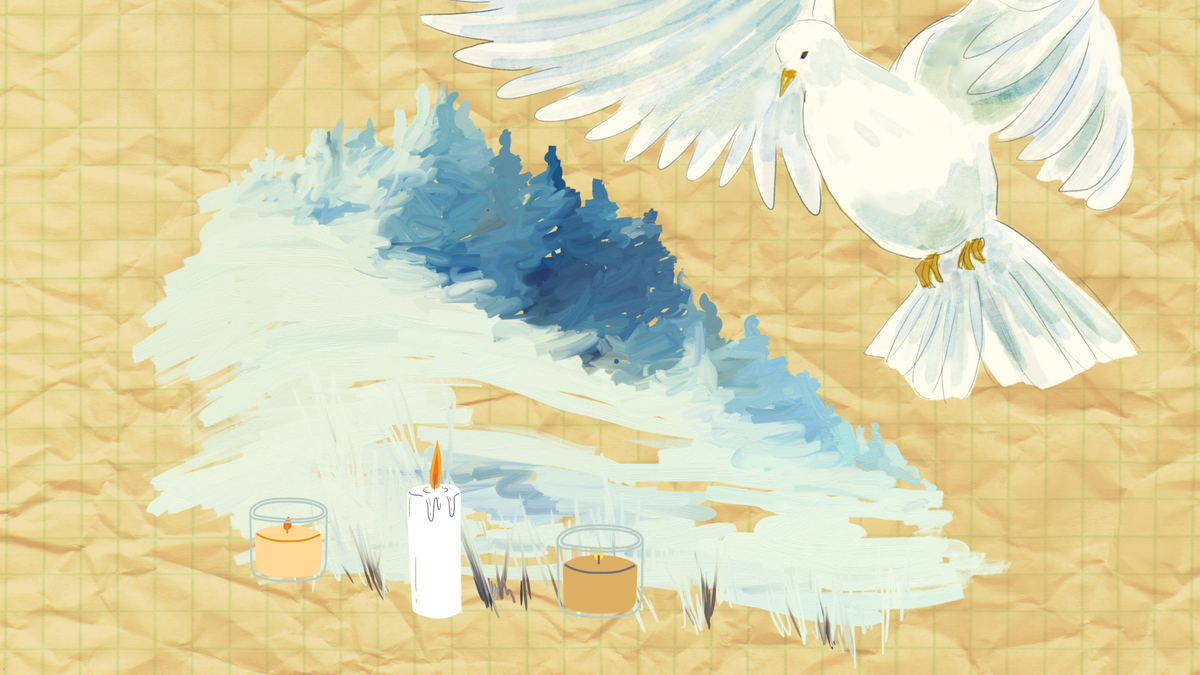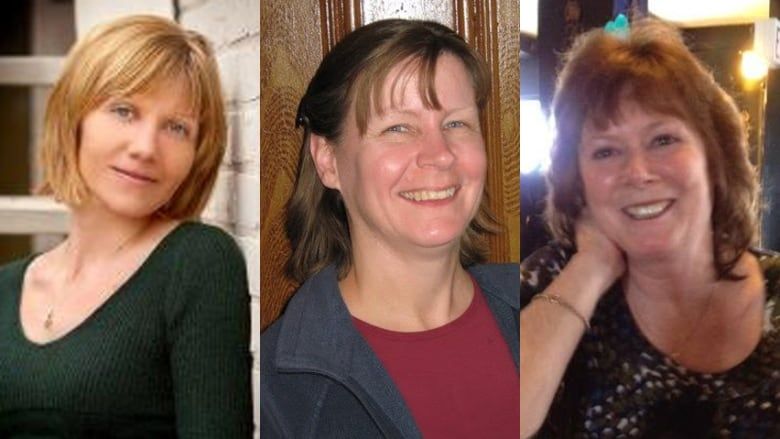Society Prefers Dead Women to Women Who Fight Back
Femicide is a feature, not a bug, of patriarchy.

On the morning of September 22, 2015, Carol Culleton, Anastasia Kuzyk and Nathalie Warmerdam were murdered in their homes in Renfrew County, Ontario by a man who knew all three women. In June 2022 a coroner’s jury examining their deaths made 86 recommendations for femicide prevention. Last week, a newly-formed action committee, What Now, Lanark County? hosted a community meeting to discuss the inquest and its implications for the work of ending male violence going forward. I used to work at Lanark County Interval House and was invited to say a few words.
*Note: This version of the speech contains slight alterations
I’d like to begin my remarks with an apology to the families of the three women murdered in Renfrew County on the morning of September 22, 2015.
If I’m to be honest, I’ve spent the last 36 years apologizing to women.
I apologize when their batterers are released with a slap on the wrist, freed to wreak more havoc in their lives.
I apologize when their rapists are not charged.
I apologize when they are imprisoned for defending themselves against domestic terrorism.
I apologize when they are forced to hand over their children to men who have brutalized them—because the courts don’t think how a man treats the mother of his kids has any bearing on his parenting.
I apologize when their children are murdered on access visits.
And when they themselves are murdered, I apologize to their families. As I do today.

In the early years of my work, when women would ask me, “How is this happening when we are the victims of unremitting cruelty? How is it that our abusers are running the show?”, I’d say, “I’m sorry. We’re working on it. It’s a matter of educating police, judges and CAS.”
Back then, I believed my own words. I saw myself as part of a broken system.
I no longer see the system as broken, but working exactly as intended, to maintain control of women.
I’ve spent 36 years witnessing women in Canada being hung out to dry by CAS and the courts. I’ve buried more women and children than I can count; sometimes entire families. And I’ve listened to the same mind-numbing, woman-blaming rhetoric after each femicide as we quickly turn our minds, not to men and their entitled violence, but to women, and how we need to open up about abuse, break the silence, “leave”. The message is always the same: she could have handled it better.
It’s so ridiculous. The truth is, women face massive resistance to leaving abusive men. They are opposed at every turn by the justice system itself, routinely patronized, belittled, accused of overreacting and “having an agenda”. They endure massive character assassination and are routinely abandoned to situations of grave peril. They are prohibited from taking their children—and themselves—to a life of peace and security. Father’s rights supersede even the rights of the women they batter. Ironically, it is often the men who receive society’s sympathy. Even when men kill women, their violence is explained away by stress or mental illness.
We hamstring women, trapping them between a rock and a hard place. Stay and be mistreated, and possibly killed, or leave and live in fear, and possibly be killed. Oh, and by the way, your children may be killed. We hope not, but we can’t be sure. You might want to teach them a code word, or maybe give them a safety plan so they know to run into the bush if the perpetrator shows up. Nathalie Warmerdan’s son Adrian, 15, was in the house when his mother’s killer showed up. He ran into the bush as she had instructed him to do.
Oh, and remember, you may not pick up a weapon to defend yourself.
We prefer dead women to women who fight back.
So we block all the exits. And then when the next women is murdered, we say, “Oh, how terrible! Women, you need to open up about abuse! You need to break the silence!”
"We support women in living with male violence. We’re just not prepared to free them from it."
It’s not that we do nothing for women. We’re prepared to help them cope, adapt, hide, and so on. We support women in living with male violence. We’re just not prepared to free them from it. Anything—so long as it doesn’t inconvenience men, or challenge the power structure. Worried your husband's going to kill you? How about some counseling to manage the stress? What about a self-defence course? Yoga? Candles in the bath? A guard dog? Have you thought of moving? Oh, right, he has joint custody of the kids; I forgot.
The power structure we have accommodated ourselves to is called patriarchy. It’s a system of governance around 10,000 years old wherein men hold the power, make the laws, and adjudicate their own crimes. They have control over the process of thought itself, defining reality in a way that benefits them. It is always he, not she who is the more credible witness to what happened. The structure is designed to keep women in our place, serving men’s needs.
I have come to the conclusion that femicides are not the result of inadequate laws, or policy failures. Femicides are the policy. Violence against women is the policy in a patriarchy; necessary to maintain control of women. We allow these murders. They are a good bang for the buck, letting all women know what can happen if we step out of line.
Each femicide has its roots in deep-seated cultural hostility to women. We know the perpetrator has contempt for women. What we need to come to terms with is the culture’s contempt for women.
We’ve been in a backlash since just after the Montreal Massacre, when women’s pain burst its banks and we began to speak out about all the violence in our lives. Men pushed back, hard, told us to shut up and accused us of being man-haters. It was devastating.
Since then our country, and our planet, have been awash in woman-hating. Through the “sex industry” the hatred of women has been commercialized, monetized and normalized. As Caitlin Roper writes in Sex Dolls, Robots and Woman Hating: The Case for Resistance (Spinifex Press, 2022), “The sexual objectification of women serves as the foundation for men’s violence against women in all its forms. It all begins with objectification.”
Pornography today is so violent and dehumanizing to women and girls that most women can’t look at it without being traumatized.
Canadians have the honour of owning the world’s biggest conveyor of woman-hating, the Montreal-based website Porn Hub. The website is free to access, with no age restrictions and no restrictions on the defilement of women. Rape and torture videos abound. Porn Hub was visited 42 billion times in 2019. To put this number in perspective, there are 4 billion men on the planet.
Sex dolls and robots are patriarchy’s latest creation, described by one aficionado as “better than real women because they can be endlessly violated and torn apart without any complaint.” (Roper) You can buy just the torso if you prefer, or just the head. Or just the anus. All available on Amazon and Etsy. Be sure to leave a review.
Is it any wonder that girls are, in the words of Indian filmmaker Vaishnavi Sundar, “fleeing womanhood like a house on fire”?
Turning to the inquest. Will it change anything?
It is likely that one or another woman will benefit from one or another of the jury recommendations. But will we be back here in another 30 years, lamenting that nothing has changed? I think deep down we all know the answer. By then, another 1800 women will have died violently in femicides in Canada. We have a lot of work to do to avoid that scenario.
"We can’t stop femicide if we don’t allow women to defend themselves against male violence without fear of being criminalized."
I have my own list of recommendations. (Don’t worry, there are only five!)
We have to start looking at the cultural drivers for violence against women. We can’t stop femicide without taking out the reservoirs of woman-hating. We need our society to exit from systems of prostitution and pornography. They are the boot camps of male entitlement—and primary sites of the destruction of women. They must be abolished.
We can’t stop femicide without stopping all the “lesser” forms of male violence. It’s curious that these inquiries always focus on murder, as if just keeping women alive is the bar for success. Yes, we want women alive, obviously; these murders are catastrophic. But the murders are just the tip of the iceberg. We need men’s brutality towards women in all its forms to stop. And it is only in stopping the lesser forms that we will challenge the entitlement that leads to femicide. Every pass given to the man who harms women is a bullet in his gun.
We can’t stop femicide if we don’t guarantee abused women safe exit with their children. Women must not be forced to surrender their children to men they fear. They are the mothers, they know their kids. Their decisions regarding their children must be respected. If we want to stop femicide we must clear a path for women and children. Believing and supporting women must become the default response of Children’s Aid Society and the courts.
"Moving forward, we will have to be bolder."
We can’t stop femicide if we don’t allow women to defend themselves against male violence without fear of being criminalized. Women are vulnerable to men on every count. We’re sitting ducks. Basil Borutski—convicted of killing the three women and sentenced to life in prison—told police he was surprised how very easy it was that morning. Smooth sailing all the way. As if God himself was opening the doors.
He was right of course. We did open the doors for him.
Finally, we won’t stop femicide until we as women come to terms with the true conditions of our lives, stop colluding in our own oppression, and rise up to demand a world where our lives matter. We need a renewal of the women’s movement in this country.
Moving forward, we will have to be bolder. Up until now we have played it too safe, asking rather than demanding our fundamental human rights. I think in the next phase of our work we will need to take more risks, be more dissident, more political. Perhaps we can take inspiration from the brave women of Iran, risking their lives at this very moment attempting to bring down a misogynist regime.
Thank you.
Only when we know about the violence women and girls face are we able to make a difference. Help us expose male violence by becoming a monthly donor! The generous support of our readers helps to pay our all-female staff and writers.
Enter your email below to sign in or become a 4W member and join the conversation.
(Already did this? Try refreshing the page!)





Comments